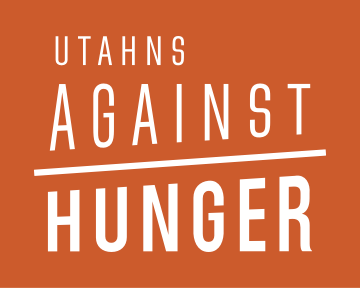If enacted, many of the other proposals would make it increasingly difficult for low-income Americans to access housing, child care, health care, and work.
Of greatest concern for Utahns Against Hunger is the proposal to cut funding for the Supplemental Nutrition Assistance Program (SNAP, formerly known as food stamps), by $217 billion dollars over ten years. This would require a fundamental shift in the purpose and reach of this program that lifts tens of thousands of Utahns out of poverty and provides them the resources to put food on the table.
According to analysis by the Food Research and Action Center: “The president's budget proposes to:
- reduce SNAP spending by an astronomical $217 billion over 10 years, which can only be accomplished by cutting out of the program entirely, or reducing assistance sharply for, tens of millions of seniors, children, people with disabilities, working families, unemployed people, and veterans;
- replace in significant part the very successful current system of having SNAP recipients use EBT cards to purchase food through grocery stores, supermarkets, farmers markets, and other normal commercial channels with a Rube-Goldberg designed system of commodity distribution via food boxes that will be administratively costly, inefficient, stigmatizing, and prone to failure, and that will return the country to Depression-era anti-hunger approaches;
- impose a federal rule cutting off eligible, low-income working families to whom states have chosen to extend SNAP benefits;
- penalize large families by imposing an arbitrary cap that cuts off benefits after six people are in a household; and
- eliminate the minimum benefit that particularly supports the nutrition of low-income seniors and people with disabilities.”
This budget does not reflect the values of the American people, who by and large support programs that help low-income Americans. Along with these proposed cuts, this administration has recently increased their rhetoric about the Americans who use these programs. These statements have been largely focused on work requirements for SNAP, Medicaid and other programs. In fact, SNAP and many other programs already include work requirements, and 85% of Utah’s SNAP families with a working age adult had at least one working adult in the past 12 months. SNAP is and should remain a nutrition assistance programs, efforts to enact stricter work requirements ignore the fact that many Americans accessing public assistance programs work.
This budget is a flagrant message to seniors, people with disabilities, and low-wage workers that their struggle to make a better life for themselves will remain out of reach because the White House thinks they are not worthy of help. Utahns Against Hunger remains committed to fighting any enactment of these proposed cuts and defending Utahns who depend on SNAP and other programs.
